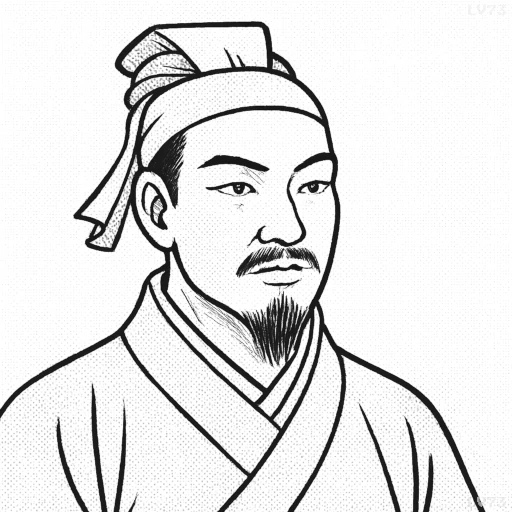“The enlightened ruler is heedful, and the good general full of caution.”

- 544 BC-496 BC
- Born in China
- Military strategist, military strategist
table of contents
Quote
“The enlightened ruler is heedful, and the good general full of caution.”
Explanation
In this quote, Sun Tzu underscores the importance of caution and careful consideration in leadership. The enlightened ruler, aware of the complexities of governance and warfare, does not act impulsively. Instead, they remain vigilant and attentive to the ever-changing circumstances around them. Similarly, the good general is one who is not reckless or overconfident, but who consistently approaches each decision with prudence and foresight. Caution allows leaders to assess risks, anticipate potential problems, and make informed choices that minimize danger and maximize chances for success. This careful approach prevents rash actions that might lead to unnecessary harm or failure, especially in uncertain or volatile situations.
In the modern world, this principle is widely applicable in areas such as political leadership, business, and military strategy. For example, in business, a CEO who is heedful of market trends and potential risks, like Jeff Bezos during Amazon’s early years, can successfully navigate challenges and avoid disastrous decisions. Eisenhower‘s leadership during World War II exemplified this cautious approach: he carefully considered the logistics, timing, and potential consequences before launching operations such as D-Day. In politics, leaders who maintain a measured approach, such as Angela Merkel during her tenure as Chancellor of Germany, tend to avoid rash decisions that could lead to long-term instability. The focus on prudence and caution is essential for sound decision-making in both times of peace and conflict.
Historically, leaders who exhibited heedfulness and caution have been more successful in preserving their power and achieving victory. For example, Napoleon Bonaparte’s initial success came from his careful planning and thorough understanding of battlefield dynamics, which allowed him to avoid unnecessary risks early on. Abraham Lincoln’s careful deliberation during the American Civil War—such as his cautious approach to emancipation and his understanding of public opinion—was pivotal to his eventual success. Queen Elizabeth I of England, too, exemplified heedfulness in her foreign policy decisions, avoiding reckless conflicts and focusing on strategic alliances, which kept England stable during her reign. Sun Tzu’s emphasis on caution and heedfulness highlights the timeless importance of measured leadership, which remains essential for achieving success without overextending one’s resources or making hasty, ill-informed decisions.
Would you like to share your impressions or related stories about this quote in the comments section?
